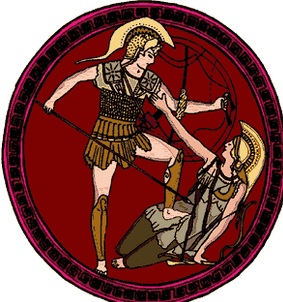Walter Russell Mead writes: The most interesting, as opposed to the most explosive, component of Syriza’s agenda is its commitment to attack the “oligarchs”—the small number of extremely wealthy, powerful, and well-connected Greek families and individuals who sit at the top of Greece’s deeply corrupt, clientelist system. The struggle against the the oligarchs is heating up. The “oligarchs” include private TV channels, “crony” bank loans for the well-connected, majority shareholdings of private banks. Can aggressive tax audits be used on offshore bank accounts?
For Syriza, the fight against oligarchs at home and technocrats in Europe and at the IMF is connected. For Americans the connection may be harder to figure out: economic and political realities in societies in both southern Europe and Latin America are often so different from the conditions that Americans take for granted that it’s hard for us to understand what some of the fuss is about. Our richest and best-connected citizens in the United States have never quite—in spite of their dearest wishes—managed to establish total oligarchic control of our society. The economy is too big, the country too diverse (geographically and culturally), and American society too dynamic and egalitarian for the rich and the powerful to lock everything down.
But in many countries, the rich haven’t just tried to create oligarchies. They’ve succeeded, and the political, economic, religious, and cultural establishments have become entrenched, powerful, self-dealing, and corrupt. Often the interface between the global economy and the national economy is controlled by an oligarchic group of families and interests allied with foreign capital, who use the slogans of free markets and capitalism to cloak what is really a kind of pre-modern, semi-feudal system of government.
In these countries, popular revolts against privilege and oligarchy often take the form of left-wing socialist and populist movements. When labor unions fight the owners of enterprises, they are fighting the feudal oligarchs for a bigger share of the economic pie in a struggle that has important political as well as economic implications. When populist protest parties rail against privatizations required by foreign institutions like the IMF and the EU, they are fighting, at least in part, what they know to be a corrupt arrangement through which the “right” oligarchs are snapping up valuable assets at fire-sale prices.
Many “reforms” in developing countries have enhanced the positions of powerful and shady figures. Syzria and the Greek Oligarchs

